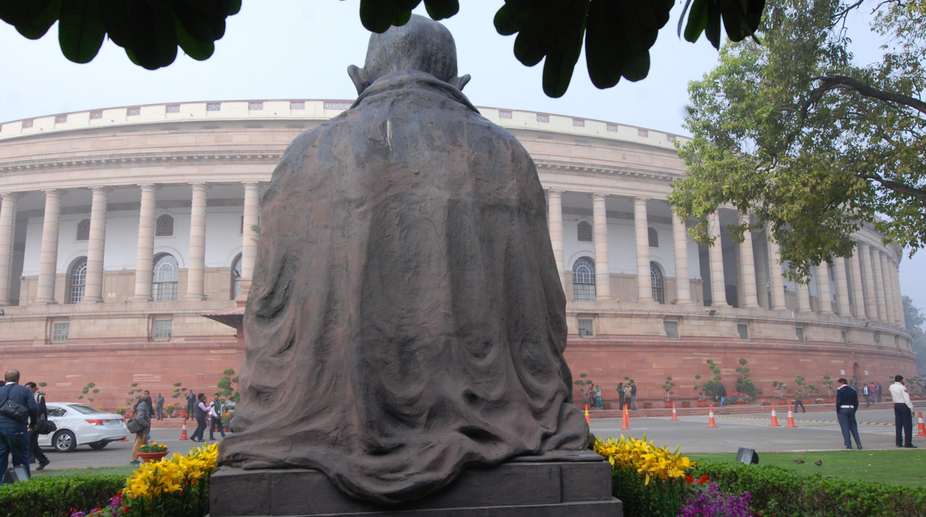Since Independence, a common failing of successive Governments has been a noticeable gap between promise and performance. Tall promises are made for the betterment of every conceivable thing, expectations soar but the situation on the ground hardly ever changes. Repeated failures of the Government to deliver on its promises have led to a deep mistrust of politicians and bureaucrats in the minds of the common people.
It is not as if all persons in authority are necessarily corrupt or do not care for the public good. Well thought-out schemes are rolled out, enough funds are allocated but the results are generally not on expected lines. An unbiased systemic study of the reasons for the failure of Government in providing essential services and the monumental inefficiency of Government enterprises like the Railways and Air India has not been attempted so far. Based only on my long association with the Government, I daresay that the non-performance of the lower level of Government functionaries is responsible for most of the failures of the Government.
Consider a simple case; most of the roads in cities are never cleaned. Who is responsible? Obviously, the municipal employees entrusted with the task of cleaning those particular roads. However, such defaulting employees are never even identified, let alone penalised. Probably, the Municipal Commissioner is afraid that if he acts against even a single employee the entire municipal work force will go on strike and he (the Commissioner) would be transferred out with an adverse remark. Consider this: enforcement of biometric attendance in New Delhi Municipal Corporation in 2009 revealed that 18 per cent of its employees were non-existent. More than massive corruption, this showed that the performance of the municipal staff was so dismal that their absence was not even noticed.
Though there have been news reports and articles on the Gorakhpur deaths and the Khatauli derailment, but the common thread running between the two tragedies ~ the callous attitude of Class 3 and Class 4 Government staff ~ has not been adequately highlighted. Preliminary reports of the rail mishap suggest that railway gangmen removed a part of the track without warning, even when they were fully aware that a number of trains were to pass on the tracks soon. Surprisingly, topmost railway officers have been punished for the default of the junior most staff. After the Gorakhpur tragedy, the Government has acted against senior doctors but has not probed the role of the persons actually managing the oxygen supply. The UP Chief Minister blamed lack of sanitation for the deaths, but he did not even name the persons responsible for the poor sanitation in the hospital.
Such mishaps occur despite detailed operating procedures being laid down for gangmen, sanitation staff etc. (such instructions are often prominently displayed on walls or posters) because such procedures are almost never followed; the junior staff being almost totally unaccountable in Government offices. Since the entire accountability for their junior’s default lies on seniors, complaints to higher officials only elicit helplessness. After the roads in Ahmedabad and Mumbai were washed away by rains, it emerged that all roads were constructed under the supervision of six municipal employees. Everyone conveniently blamed road-building contractors for the broken roads, but the major part of the blame lies with the road supervisors who acquiesced in the construction of such substandard roads. This is the reason why the Municipal Corporation of Greater Mumbai (BMC) went hammer and tongs after the DJ who sang that innocent ditty about poor roads.
One of the reasons for the tyranny of non-gazetted staff is that they outnumber their officers by 20 to 1. Junior staff is generally non-transferable so they also enjoy a home turf advantage. Additionally, government staff in every office is heavily unionised. By experience, the staff know that when it comes to the crunch they can browbeat their seniors. In case of strife between officers and non-gazetted staff, the Government’s stand is consistent and clear; it always favours the staff. In such cases, officers are cautioned to be “tactful”, i.e. not to precipitate a conflict at any cost.
Disciplinary procedures in the Government are so convoluted that it is next to impossible to punish a delinquent employee. The process is such that only a brave and foolhardy person would even think of initiating disciplinary proceedings against anyone. In practical terms, the maximum punishment meted out for the gravest default is a transfer, which for junior staff means going to another section in the same organisation.
Lack of suitable remuneration is not the reason for non-performance of lower-level government functionaries who earn much more than their private sector counterparts. For example, senior government drivers and peons are paid more than Rs 60,000 per month. Viewed in this context, the lack of devotion to duty of junior staff is inexcusable. Can we bring the recalcitrant government staff to heel? Yes, if the Government is prepared to risk the wrath of its employees, who are a valuable votebank and who also conduct elections all over India. On the other hand, if the Government can make its lower-level employees work, it would be able to implement any agenda fully.
In this context, the much reviled Emergency revealed an unknown facet of public servants. During the Emergency, public servants would do their jobs without fuss and would consistently achieve almost impossible tasks like running trains on time. This has a valuable lesson for the present; the Government can perform well if the fear of God was put in its minions.
The armed forces are probably the only organisation in the country left with credibility and effectiveness which is due only to the discipline of its soldiers. Whenever the situation gets out of hand, be it floods, an earthquake or civil unrest it is the army which is called in by civilian authorities. If we had that kind of discipline in the civilian sphere we would have long surpassed the rest of the world in every field.
A beginning in enforcing discipline could be made by taking employees and unions on board about the proposed changes in the Government’s work ethic. The Government should state clearly that henceforth non-performance would not be tolerated and non-performers would be suitably dealt with. Second, the Government can empower middle level officers to discipline the staff working under them. Currently, only very senior officers have the necessary disciplinary power, which is seldom put to use. Finally, disciplinary procedures have to be simplified so that quick and meaningful action can be taken against delinquent employees. Our present Government is making a sincere attempt to bring about a quantum change in many spheres, but to succeed the Government needs to sharpen and reshape the tools at its command.
Otherwise, as Robert Burns told the mouse:
But, Mousie, thou art no thy lane [you aren’t alone]
In proving foresight may be vain:
The best laid schemes o’ mice an’ men Gang aft a-gley, [often go awry]
An’ lea’e us nought but grief an’ pain,
For promised joy. ( To a Mouse, 1786)











